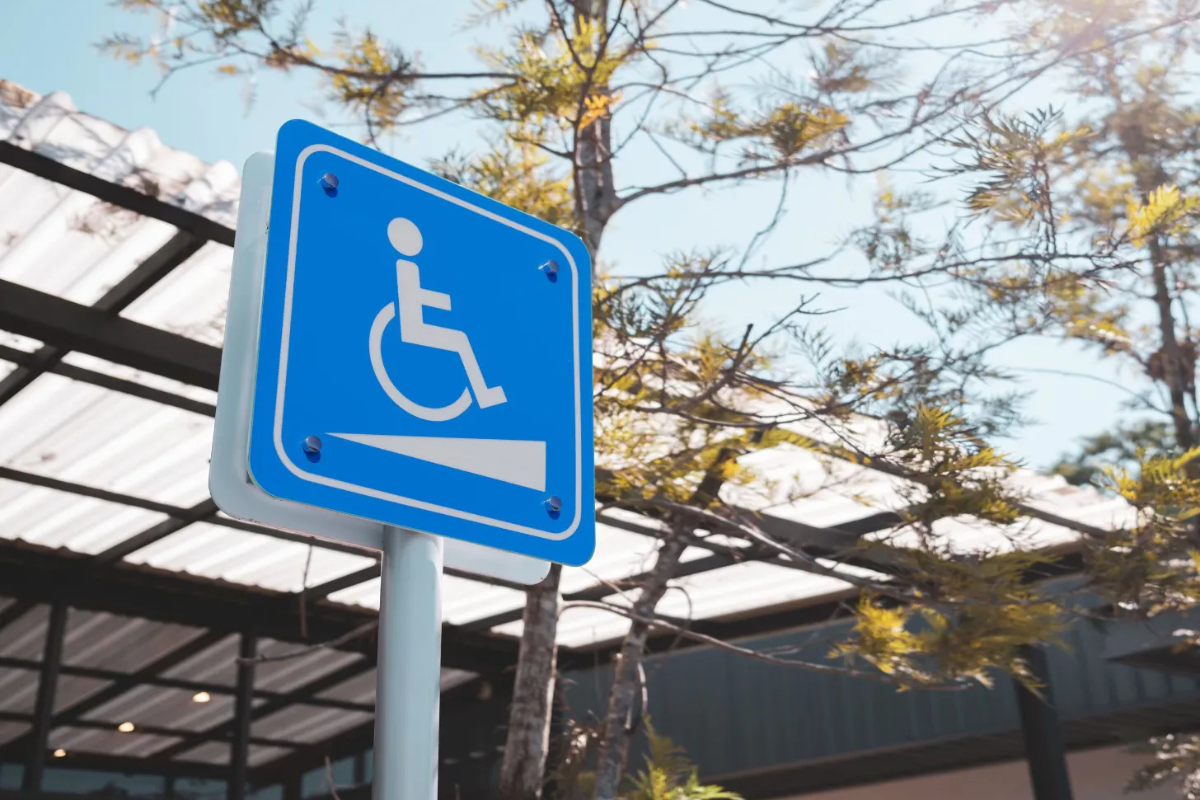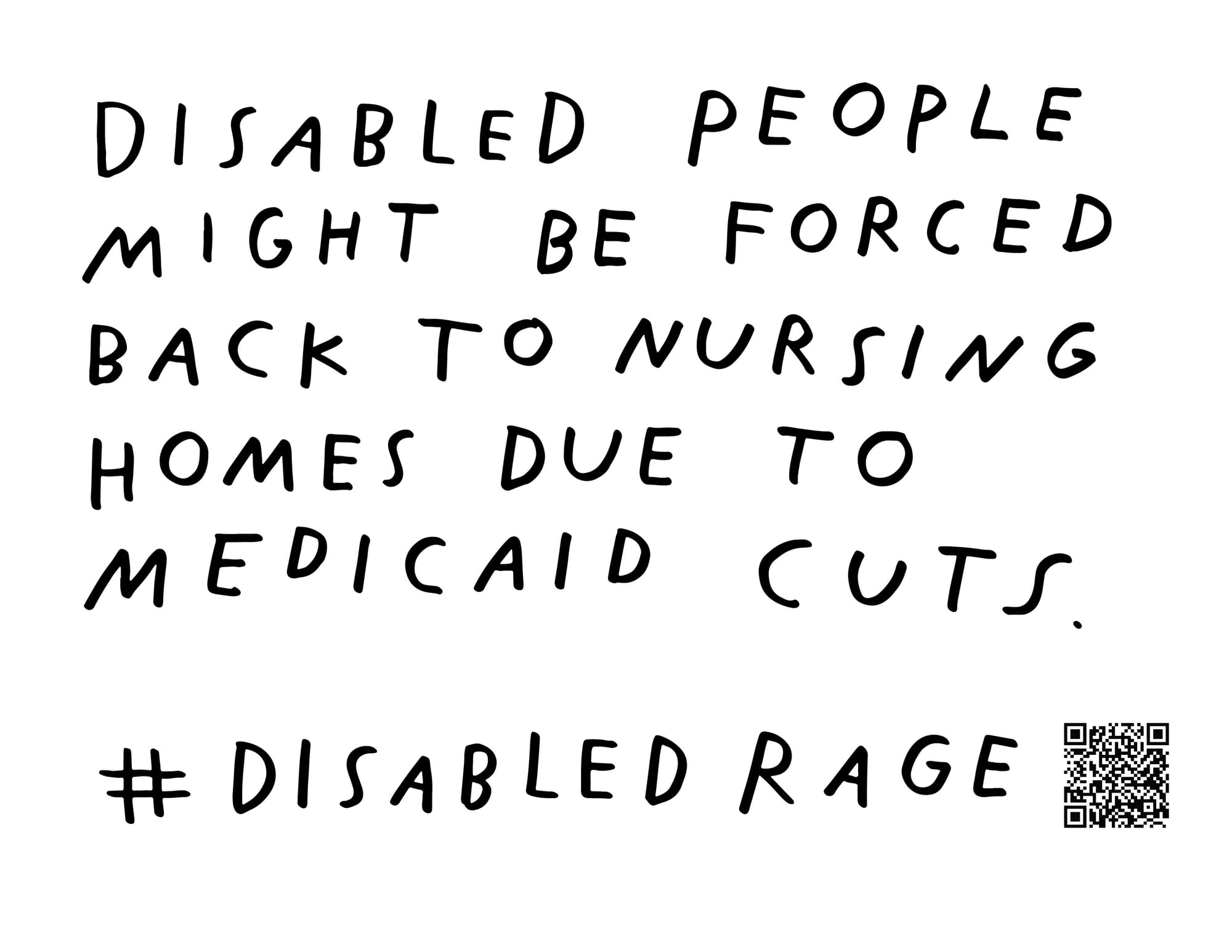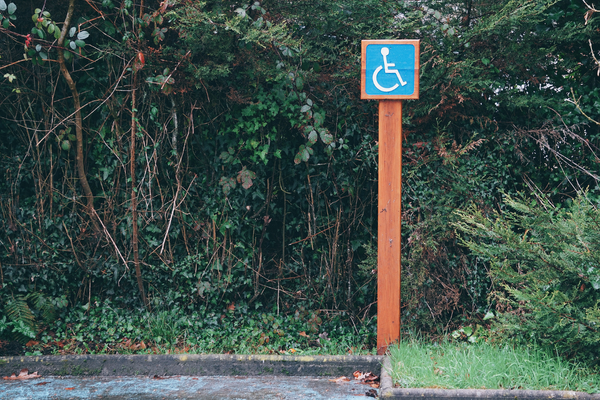9/10/25 - #DisabledRage, UK disabled employment, and AI accessibility

Good afternoon!
There's a new "Take Action" item – a social media campaign that's detailed in the first of today's three links. It's a great opportunity to say in a bold, public way what's making you, and other disabled people angry right now. The other two links focus on employment policy and some possible advantages of Artificial Intelligence for people with disabilities.
On to the links ...

Disabled Rage
Alice Wong, Disability Visibility Project
"What enrages you? Use the hashtag #DisabledRage and share your thoughts."

I, personally, rarely experience rage, even "disabled rage." That's partly due to my relative privilege, I'm sure. I encounter ableism in my everyday life, just like any other disabled person. And I am probably more aware than even most disabled people about the injustices disabled people face, the ableist and harmful policies and practices that absolutely beg to be changed, and the deeper ways that disability issues are connected to other forms of economic and social exclusion. These things frustrate me. They are like itches I can't scratch – or, like urgent business that for no good reason just never seems to get finished. But few of these things pose an existential threat to my life or basic independence. I'm lucky in that respect. Also, I just don't think that rage is part of my personality. Sometimes that's an advantage. I can think better in the face of really severe ableism and injustice because I don't have that red mist of rage to contend with. But this lack of rage often feels like an empty space in me that makes it harder to relate to other disabled people, even as I feel other, more intellectual and personal connections with them.
All of which is simply to say that in some ways, Alice Wong's #DisabledRage campaign isn't for me. But at the same time, I love it. I don't have to be a natural practitioner of #DisabledRage to appreciate its importance, its value, and its emotional impact. And I do plan on doing some brainstorming to come up a few of my own #DisabledRage social media posters – there are reasons enough to choose from. I invite you to do the same!
Note: #DisabledRage will continue as a "Take Action" item in future newsletters for at least the next few weeks.
Promoting Disabled Peoples’ Careers: Access To Work
Nancy Doyle, Forbes.com - September 9, 2025
"There has been no official policy change or alteration to the published staff guidelines, but the Collective report that advisors are taking a harder line when considering allocation of the award. Their members have found that they are unable to take up new jobs, start and grow businesses, which has had a detrimental on their health and wellbeing."
I honestly don't know what to think of this article, or the issue it describes. Is it asking for advocacy to get the people running the Access To Work program to stop informally reducing the support the program provides? Or, is it mainly asking for employers to make up the difference? And what should we make of the references to raises in minimum wage? The article seems to imply that raising wages have made it harder for employers to accommodate disabled employees and therefore hurt disability employment – an argument we have heard before here in the US too. Does the Access To Work Collective have positions on the minimum wage, or on other, intersecting disability programs and benefits? It would be great to hear from anyone with more first-hand knowledge of this program on how it's regarded and where it fits in the broader picture for disabled people in the UK.
Why accessibility might be AI’s biggest breakthrough
Benj Edwards, Ars Technica - September 9, 2025
"The disconnect between AI's promised productivity revolution and its actual impact might reveal a fundamental misunderstanding about where these tools excel. Traditional productivity gains require AI to outperform humans at tasks we're already good at—a high bar that current technology struggles to clear consistently. But for accessibility, AI doesn't need to be perfect; it just needs to bridge gaps that would otherwise exclude people entirely. The difference between writing a report 20 percent faster and being able to write a report at all represents two entirely different value propositions."
This is another issue where I find my thoughts to be mixed and still very much in development. However, it doesn't surprise me at all to read about positive reviews from disabled people about AI as a workplace accommodation. It makes intuitive sense that AI could be extremely useful in dealing with many types of disability – especially those that affect writing, communication, and organizing work itself. And notably, it's an entirely different measure of value for AI than concerns about how AI might be used by, say, doctors, insurance companies, and government support programs to reduce benefits and supports away from disabled people. And the usefulness of AI in making disabled people's work tasks easier is entirely different than equally valid fears about AI being used in other ways to violate disabled people's rights and privacy. AI is full of pluses and minuses.







Disability Thinking Weekday is a Monday-Friday newsletter with links and commentary on disability-related articles and other content. Please like, share, comment, and subscribe — for free, or with a paid subscription.
A free subscription sends a newsletter to your email each weekday, and gives you access to the comments. Benefits of paid subscription also include:
- A monthly recap with links to all of the previous month's shared articles, organized by topic.
- Listing as a supporter, and a link to your website if you have one.
- You can recommend one disability-related article for me to share per month in a weekday post.
To to subscribe, upgrade to paid, or make a one-time donation, click one of the buttons below:
I am so grateful for your help and engagement, in whichever forms you choose!



